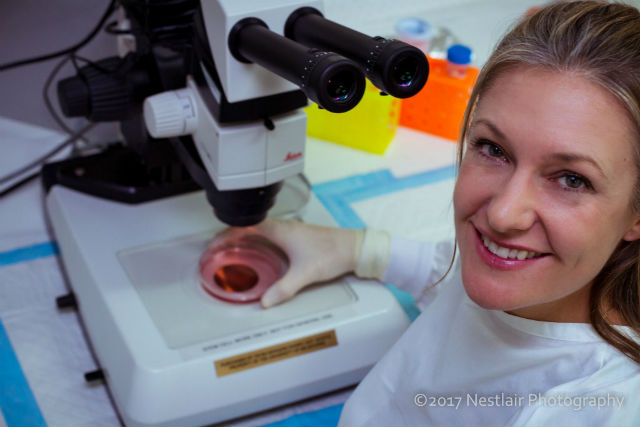Disease modelling
-
Senior Research Fellow, Senior Lecturer

Dr Bryony Nayagam90354396
Project Details

We are born with a finite number of cochlear hair cells and neurons and these specialised cell types do not regenerate. In addition, they are susceptible to a number of insults including loud noise, certain anitbiotics, cisplatin and ageing. Hearing loss may also have genetic origins. The aims of this basic research is to generate cochlear sensory cell pheontypes from individuals with known pathologies and compare these to normal phenotypes. The long-term goal of this work is to use it as a platform for personalised medicine involving drug discovery and gene editing. Projects under this research theme involve multi-disciplinary, cross-institutional collaborations between A/Prof Mirella Dottori, A/Prof Alice Pebay, A/Prof Alex Hewitt and Dr Rebecca Lim.
Researchers
Ms Tomoko Hyakumura (post-doctoral research fellow)
Collaborators
- A/Prof Mirella Dottori, Centre for Neural Engineering
- A/Prof Alice Pebay, Centre for Eye Research Australia
- A/Prof Alex Hewitt, Univeresity of Tasmania
- Dr Rebecca Lim, University of Newcastle
Funding
- Garnett Passe & Rodney Williams Memorial Foundation
- National Health and Medical Research Council of Australia (GNT1023372)
Research Publications
Gill KP, Hung SS, Sharov A, Lo CY, Needham K, Lidgerwood GE, Jackson S, Crombie DE, Nayagam BA, Cook AL, Hewitt AW, Pébay A, Wong RC. (2016) Enriched retinal ganglion cells derived from human embryonic stem cells. Scientific Reports Aug 10;6:30552. doi: 10.1038/srep30552
Gunewardene, N., Van Bergen, N., Crombie, D., Needham, K., Dottori, M. and Nayagam, B.A. (2014). Directing human induced pluripotent stem cells into a neurosensory lineage for auditory neuron replacement. BioResearch Open Access 3(4):162-175
Nayagam, B. A.(CA), and Minter, R. L. (2012) A comparison of treatments for directing the differentiation of stem cells toward a sensory neural fate. American Journal of Otolaryngology, 33(1):37-46
Research Group
Faculty Research Themes
School Research Themes
Key Contact
For further information about this research, please contact the research group leader.
Department / Centre
Audiology and Speech Pathology
MDHS Research library
Explore by researcher, school, project or topic.